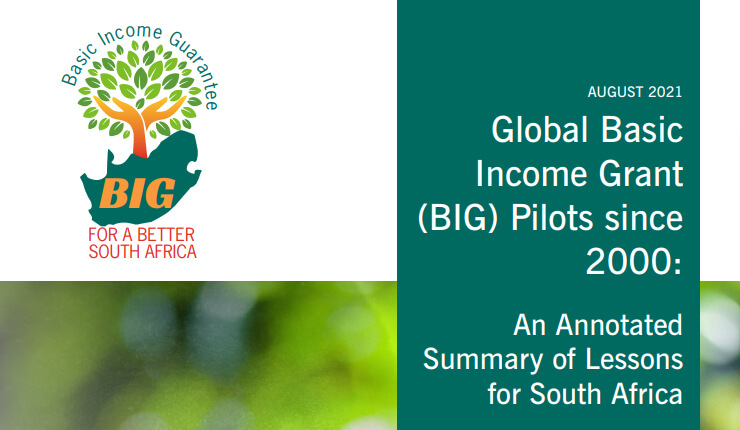Global Basic Income Grant Pilots Since 2000


2021 research report reviewing social transfer programmes within the Southern African Development Community (SADC) and global social protection responses to Covid-19.
The basic income grant (BIG) is a periodic cash transfer that is unconditional and permanent, and paid to all individuals in society. As a social security measure, the BIG is a necessary means to enhance income security for all through the redistribution of wealth generated by all. Thus, the BIG is not just a means for fighting poverty and reducing inequality, but it is also an economic stimulus that increases the purchasing power of a country’s population through direct unconditional cash transfers.
However, the BIG remains a very contentious concept in research and policy circles. Triggered by the humanitarian and socio-economic crisis exacerbated by the Covid-19 pandemic, conversations around the BIG have received renewed momentum over the last two years. In South Africa specifically, 2021 has seen a stronger appetite for BIG even among policy makers. This comes at the back of numerous pilot studies that have been carried out over the past few decades across the world to test various policy variables around the BIG and its practicality.
The objective of this paper is therefore to collate from a selected number of BIG pilot experiments that have taken place across the globe since the year 2000, an annotated summary of lessons of the potential social transformational impact of BIG. These lessons will form part of the Studies in Poverty and Inequality Institute’s (SPII) efforts to advance the research, policy, and social dialogue on the implementation of a BIG in South Africa.